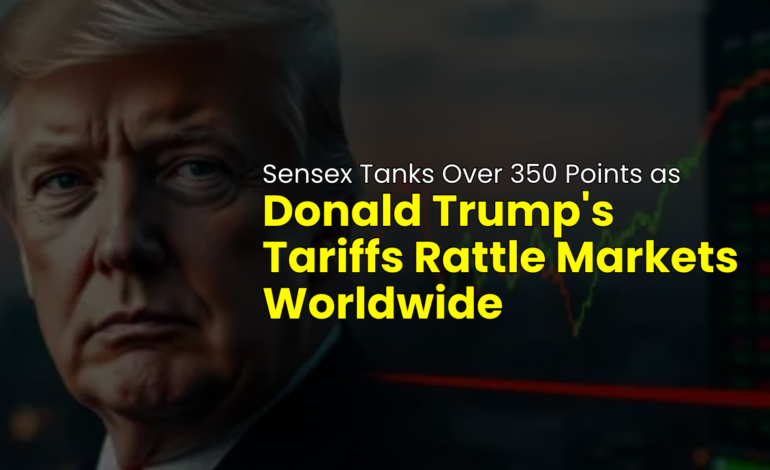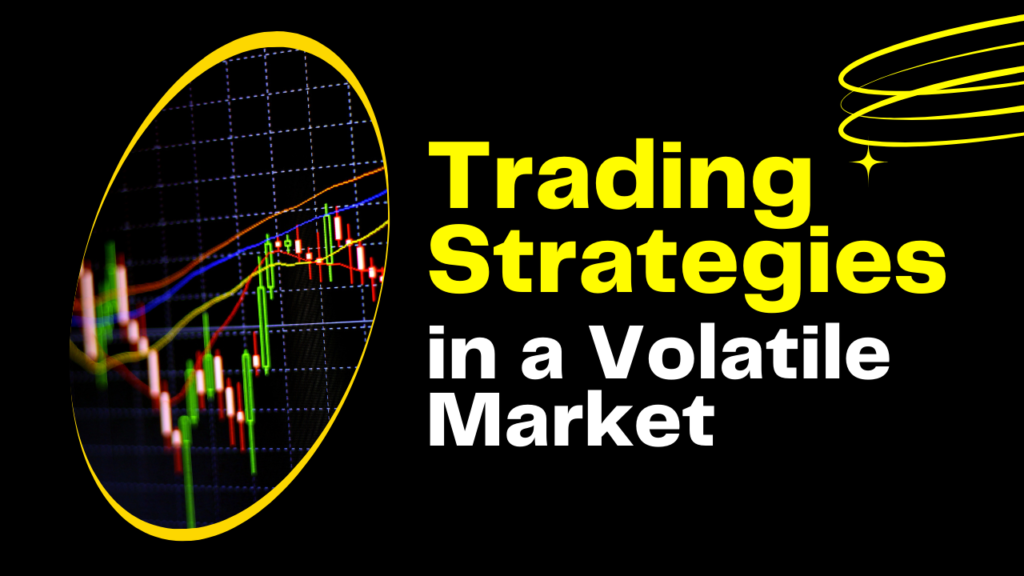
Sensex Tanks Over 350 Points as Donald Trump’s Tariffs Rattle Markets Worldwide
The Indian stock market faced a sharp downturn as the BSE Sensex plunged over 350 points following the announcement of new trade tariffs by former U.S. President Donald Trump. The global markets responded negatively to the development, with investors pulling out funds due to rising uncertainty. This move has created ripples across various sectors, including technology, automotive, and manufacturing, impacting stock markets worldwide.
Trump’s Tariffs and Their Global Impact
Donald Trump, known for his aggressive trade policies during his presidency, has once again signaled his intention to impose higher tariffs on several imported goods, citing the need to protect domestic industries. This decision has particularly affected economies that heavily depend on exports to the U.S., including India, China, and the European Union.
Markets across the globe experienced a dip, with Asian indices following Wall Street’s bearish trend. The Nifty 50 also dropped by nearly 100 points, while Dow Jones futures indicated a possible continued downturn. Investors are now concerned about the potential for a renewed trade war, which could escalate inflation and disrupt supply chains.
Impact on Indian Markets
The Indian economy, which has been striving for stability post-pandemic, saw significant effects from this announcement. The stock market sell-off was led by losses in:
- IT and Tech Stocks – Companies like Infosys, TCS, and Wipro saw declines as IT services firms anticipate potential restrictions and tariffs on outsourcing.
- Automobile Sector – Companies such as Tata Motors and Maruti Suzuki faced pressure amid fears of increased component costs due to global trade disruptions.
- Metals and Commodities – With fears of an economic slowdown, metal stocks including Tata Steel and JSW Steel witnessed selling pressure.
- Banking and Financial Sector – Major financial institutions saw a decline as market sentiment turned negative, affecting stocks like HDFC Bank, ICICI Bank, and SBI.

Trading Strategies in a Volatile Market
For traders and investors, navigating this volatile period requires strategic planning. Here are some key trading strategies to consider:
- Diversification is Key – Spreading investments across different asset classes such as equities, commodities, and bonds can help reduce risk.
- Defensive Stocks – Investors may look at defensive sectors such as pharmaceuticals, FMCG, and utilities, which tend to perform better in uncertain times.
- Hedging with Gold and Bonds – Gold has historically been a safe-haven asset during market turmoil. Similarly, investing in government bonds or fixed-income instruments can help stabilize portfolios.
- Short-Term Trading Opportunities – Traders can capitalize on intraday volatility by using techniques like swing trading, options trading, or stop-loss strategies to minimize losses.
- Stay Updated – Keeping an eye on global economic policies, upcoming trade agreements, and Federal Reserve decisions can help traders make informed investment choices.
Global Market Reactions
Other major stock markets also felt the heat:
- Wall Street: Dow Jones, S&P 500, and Nasdaq saw significant losses as investor sentiment turned cautious.
- European Markets: The FTSE 100, DAX, and CAC 40 declined as concerns about retaliatory tariffs emerged.
- Asian Markets: Japan’s Nikkei, Hong Kong’s Hang Seng, and China’s Shanghai Composite all ended lower following the U.S. announcement.
What’s Next for Investors?
The stock market is expected to remain volatile in the short term. Investors should adopt a long-term approach, focusing on fundamentally strong stocks while keeping an eye on market movements. Additionally, regulatory actions from India and other nations in response to Trump’s tariffs could further shape market dynamics.
Conclusion
The Sensex decline of over 350 points serves as a stark reminder of how global economic policies can directly impact markets. As uncertainty looms, traders and investors must remain vigilant, employ effective risk management strategies, and stay informed about global trade policies. With careful planning and diversified investments, navigating the market’s ups and downs can become a more manageable task.






